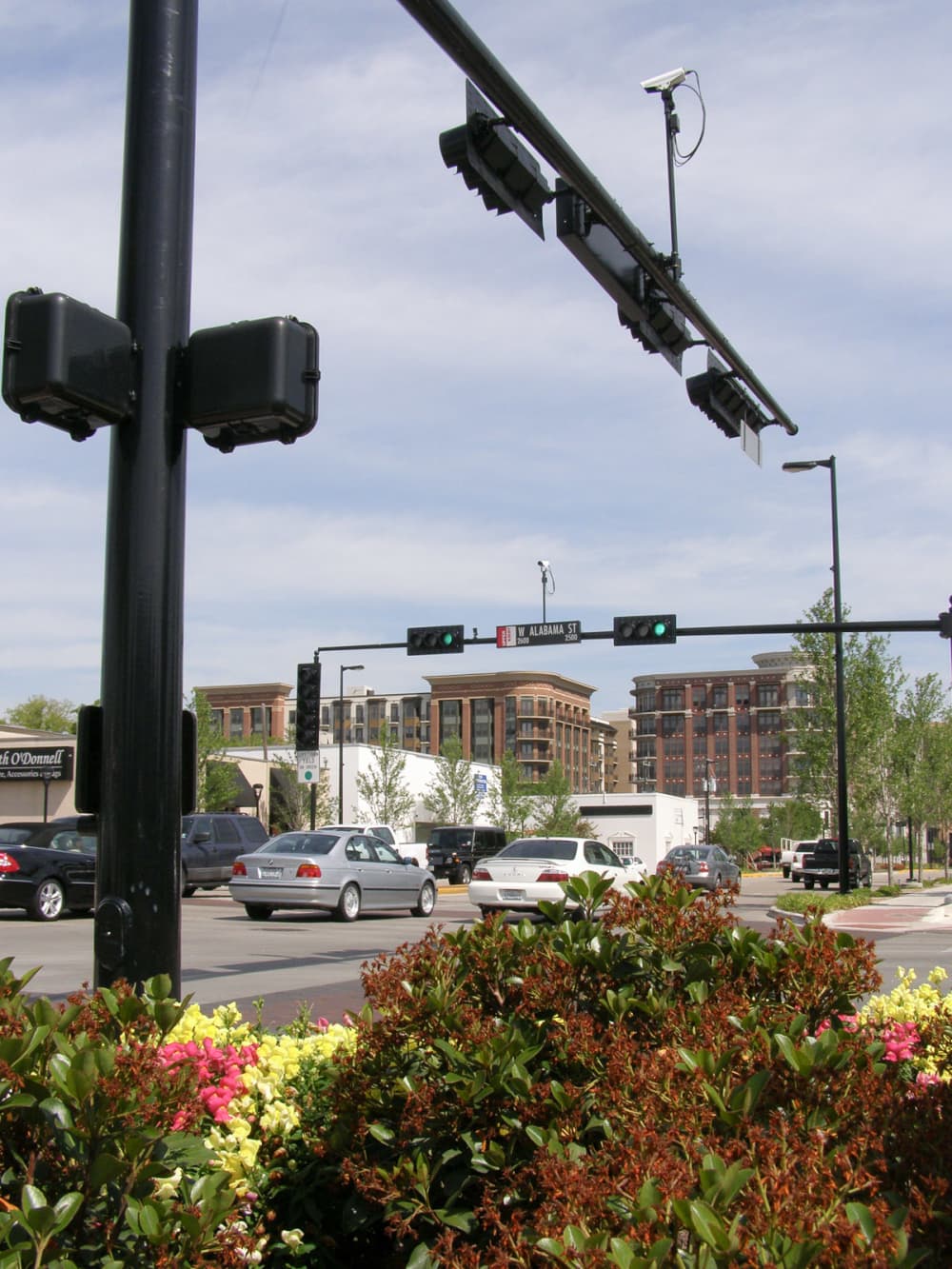Mixed signals
Houston's red light cameras stuck on yellow: Tickets still being issued despitevote down
 Houston, you still have to stop at the red light!
Houston, you still have to stop at the red light! Red light cameras annoyed Houston drivers.Photo by Barbara Kuntz
Red light cameras annoyed Houston drivers.Photo by Barbara Kuntz
Houston, you still have to stop at the red light. Or the camera will know.
Although Houstonians voted down the city's red light camera program in Tuesday's election to seemingly put an immediate end to the use of the devices (which have issued more than 800,000 tickets and collected $44 million in fines since 2006), the 70 cameras are still in operation as the city sorts out the exit strategy on its contract with ATS, an Arizona-based company that owns and operates the equipment. The city says that tickets will still be sent out to red-light runners caught on camera — and those tickets must be paid — until the program is officially ended.
"The citizens of Houston voted: the cameras have to come down. They have to quit issuing tickets," says Paul Kubosh, a Houston traffic attorney who helped get the issue on the ballot in the first place. "They are now violating the will of the voters."
Kubosh asserts that the cameras did not prevent accidents. He explains that the time of yellow lights is shorter at intersections with cameras and, thus, drivers receive undeserved tickets. He also cites that the city refused to release data proving the efficacy of the red light cameras. In fact, he sued the city for withholding the information. Additionally, recipients of red light camera tickets couldn't appeal them through the standard legal process.
Kubosh and his team will attend a city council meeting on Tuesday to dispute the maintaining of the cameras.
"We're going to ask the mayor in front of everybody, 'When are you going to cut off the cameras?' ," he says, adding, "I cannot believe she (Annise Parker) still has the cameras operating."
Just how the city will get out a five-year contract it signed with ADT in May 2009 remains to be seen. The agreement requires the city to provide the company with a 120-day notice of cancellation, which the city maintains is the reason it's continuing using the cameras. Houston City Attorney Dave Feldman told the Houston Chronicle that City Council will canvass the vote by Nov. 15 to ensure the election's accuracy. The city risks a lawsuit for ending the contract, Feldman warns.
"To be honest, I don't know what they're going to do," Kubosh tells CultureMap.
Although the defeat of Proposition 3 may sound like a victory considering none of us like pesky traffic tickets, the eventual removal of the cameras means a $10 million loss for Houston's budget, according to city officials.
Jim McGrath, a spokesperson of Keep Houston Safe, tells CultureMap, “We’re obviously disappointed. We put together an unprecedented safety coalition of police and firefighters and medical groups, like Texas Children’s Hospital, who rallied around the truth that red light cameras save lives. We’re sad that the distrust and fear amongst voters was to the extent that they couldn’t take the word of first responders that the program would do what we were saying it would do. There’s been a lot of misinformation out there the last four years.
"The other day the voters registered their preferences. What choice do you have but to honor that. That’s politics."
McGrath’s voice saddens, “The thing that really bugs me is a woman named Yolanda Macias who came to us through the campaign website to help with our cause. Her 4-year-old son was killed by a red-light runner. She was working the polls Tuesday in memory of her late son. She understands in a far too painful way the implications of not having these cameras up.”
What does this mean for Houston drivers? Obviously McGrath expects an increase in accidents while Kubosh does not. One dire possibilities exists regardless of which side you're on: The absence of cameras could strain the police force. The already severely undermanned HPD had looked forward to maintaining the program because it was a force multiplier. Each camera meant one less cop needed per intersection.
When asked how HPD will react, McGrath says he is unsure. "If they choose to beef up the traffic patrol where will they get the resources? Will they take officers off homicide?"
Another question lingers: What will happen to the cameras themselves?
We suggest that the city (or is it ATS?) raffle off the cameras or use them as mini time capsules. This could be an art project or slide show in the making.
However, due to the costly investment, it's more likely that ATS will remove the cameras and attempt to use them elsewhere.

 The building at 4911 will be torn down for the new greenspace. Holland Lodge No. 1, A.F. & A.M./Facebook
The building at 4911 will be torn down for the new greenspace. Holland Lodge No. 1, A.F. & A.M./Facebook